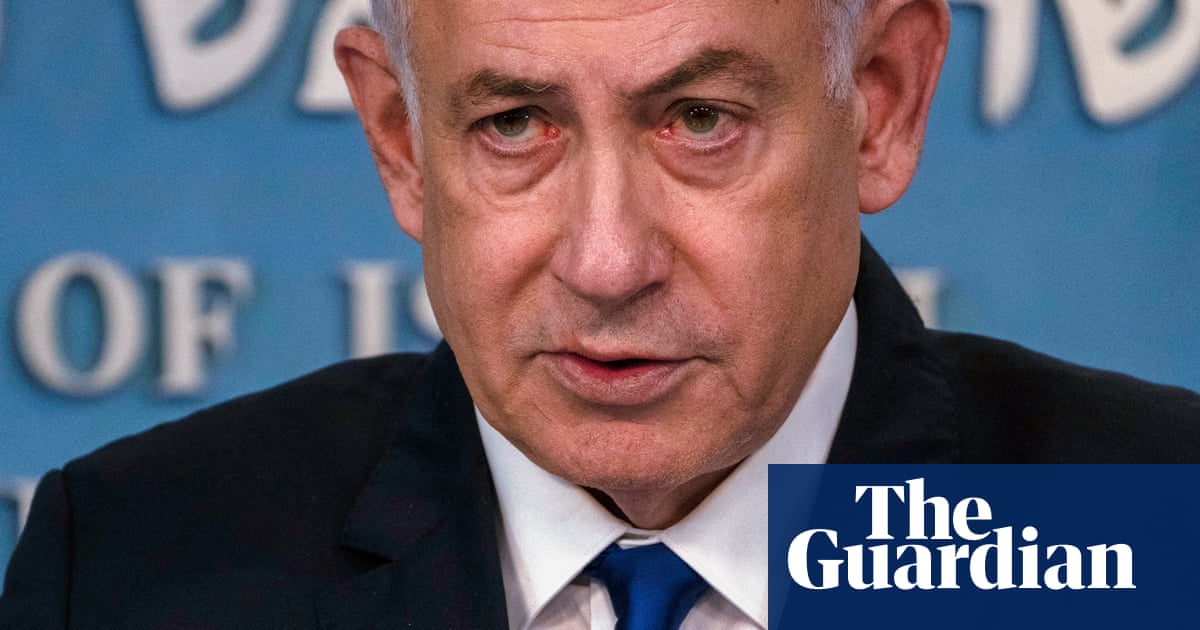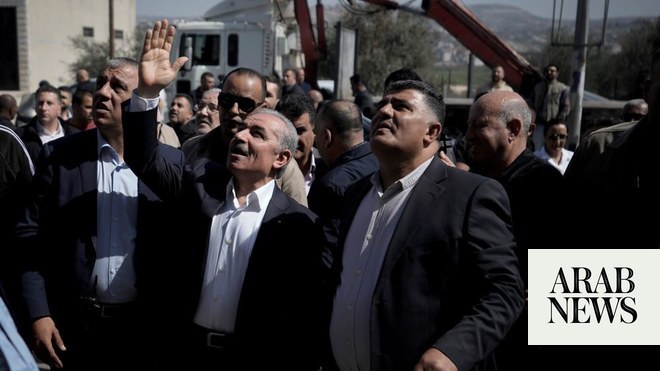
I could not help but notice that the step taken last week by Germany to ban the Islamic Center Hamburg, an association that had been under investigation for several months, over its links to Iran’s supreme leader and militant groups across the Middle East such as Hezbollah, received relatively limited coverage in the Western press.
Maybe that important bit of news got buried by Kamala Harris’ likely nomination for the US presidency or by the spectacular opening of the Olympic Games in Paris. Only some Middle Eastern outlets and Israeli media gave the prominence it deserved, since Iran has been accused of meddling in the affairs of various countries in the region for decades. Gradually, most Western powers now seem to be waking up to Iran’s direct or indirect criminal activities, which have been creeping into their cities.
Many in the Arab and Islamic worlds have long been warning about the emergence of new forms of extremism, this time born and bred in European nations, especially among migrant groups. This has resulted in lone wolf or organized militants incubating among others involved with similar organizations spread across the length and breadth of most European countries.
Equally obvious for decades has been the role and great influence such organizations have had in acting as a rallying forum, as well as being indoctrination hubs, for various residents and new migrant arrivals in Germany and other European countries. They have promoted among minorities a narrative close to that of the Iranian regime’s view of the world, sowing the seeds of an Islamist political identity and set of values that promotes resistance, militancy and, in some cases, violence.
These are not only at odds with migrants’ new host country’s democratic and liberal values, but also in many cases go as far as propagating a sense of undermining, opposing and even calling for the overthrow of such countries’ systems, which ensure freedom of worship, freedom of expression, democracy and liberty for all.
The German government accused the Iran-linked center in Hamburg of having a political agenda, not a purely religious one, and it was found to be an “Islamist extremist organization pursuing anti-constitutional objectives.”
The German Interior Ministry also said that its investigations revealed that the center is a “direct representative of Iran’s supreme leader” and spreads the Tehran regime’s ideology “in an aggressive and militant manner.” It seeks to “establish authoritarian, theocratic rule” in place of a democracy, the ministry said, accusing the center of backing the “military and political dimension” of organizations like Hezbollah.
Tehran, as expected, reacted with fury, summoning Germany’s ambassador to Iran to condemn a “hostile action” it branded as a “clear example of Islamophobia.” It claimed that such actions are contrary to all teachings of the “Abrahamic faiths,” violate freedom of expression and promote violence and extremism.
If anything, the German action seems to be a measured and reserved one, even quite limited in its scope. The authorities searched only 55 addresses across the country allegedly related to the banned center, seizing a “high number of IT devices” along with cash and documents with links to Hezbollah and Hamas. The ban has also been extended to cover several organizations related to the Hamburg center, including four Shiite mosques.
If anything, the German action seems to be a measured and reserved one, even quite limited in its scope.
Mohamed Chebaro
Germany, like many Western nations, has been exceptionally tolerant and in some cases too lenient vis-a-vis hubs of extremism sprouting on its soil. Such countries have given persecuted refugees sanctuary, only for these organizations to evolve and become hubs of toxic thought and teachings that spread among exiles and minorities from every part of the world. Some of these people become the foot soldiers for ideologies, organizations, movements and regimes that were the reason many of them fled their home countries in the first place.
One cannot deny that the latest Gaza war has helped expose some facets of these religious centers that were, until recently, classified purely as places of worship, despite all the warnings from Arab and Muslim countries to the contrary. European nations have suddenly discovered that these were always centers propagating anti-Western and, above all, antisemitic beliefs.
Founded by Iranian immigrants in 1953, the Islamic Center Hamburg had been under surveillance by German domestic intelligence for some time. In November last year, investigators conducted raids on its premises and other related sites across seven of Germany’s 16 states, with “extensive evidence” found that confirmed suspicions and were sufficient to order its closure.
Unlike the US, which proscribed Iran’s Islamic Revolutionary Guard Corps in 2019, most Western nations, including Germany, have so far refused to ban the group. Instead, they have preferred to proscribe or sanction Hamas and Hezbollah elements, despite the fact that Germany and many other EU nations have been grappling with Iran-linked threats that have recently galvanized new actors due to the Israel-Hamas war.
According to an investigation by The Wall Street Journal that was published in March, Europe’s terror threat no longer emanates just from traditional affiliates and actors on behalf of the extreme right or Daesh, but also from Iran and Iran-linked organizations like Hamas and Hezbollah.
Until recently, those militant organizations had used Europe as a business and fundraising hub and as a safe place for their operatives. However, the ongoing Gaza war has shown that such groups and Iran have pivoted to plotting assassinations and sabotage in Europe, in addition to organizing protests that help them win new recruits to their cause.
Many residents hailing from the Middle East and Muslim-majority nations in Europe have long been suspicious and surprised about how tolerant the authorities in Western nations have been to the multiplication of mosques that are run by unscrupulous organizations, which are often linked to questionable donor groups.
Few of these organizations have ever hidden their toxic narrative or ideological tenets that sit on the opposite end of the spectrum to the Western values of tolerance, liberty and democracy. Western nations have for many years chosen to tolerate such groups’ business, fundraising and shady activities that have often bordered on criminality.
No doubt that the closure of this “outpost of the Iranian inhumane regime is a real blow against Islamist extremism,” as the regional government of Hamburg claimed. But one fears that this action by Germany is a case of too little, too late, since the influence of such religious centers’ teaching has spread and taken root within many communities across Europe.
• Mohamed Chebaro is a British-Lebanese journalist with more than 25 years of experience covering war, terrorism, defense, current affairs and diplomacy. He is also a media consultant and trainer.












